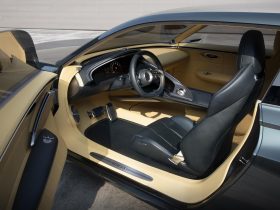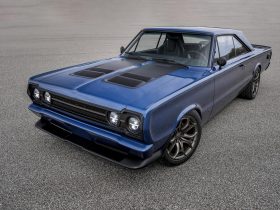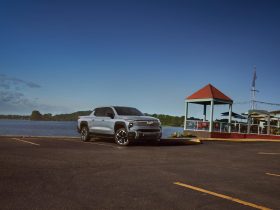Cadillac plans to expand the rollout of Super CruiseTM, the world’s first true hands-free driver assistance feature for the freeway. Super Cruise will be available on all Cadillac models, with the rollout beginning in 2020. After 2020, Super Cruise will make its introduction in other General Motors brands. Cadillac also plans to offer V2X communications in a high-volume crossover by 2023 and eventually expand the technology across Cadillac’s portfolio. Mark Reuss, GM executive vice president of Global Product Development, Purchasing and Supply Chain, announced these plans at the Intelligent Transportation Society’s annual conference in Detroit Wednesday.
“The expansion of Super Cruise and V2X communications technology demonstrates Cadillac’s commitment to innovation, and to making customers’ lives better,” Reuss said. “GM is just as committed to ushering in a new era of personal transportation, and technologies like these will enable it.”
Reuss’ comments reaffirm GM Chairman and CEO Mary Barra’s pledge in her keynote address at the 2014 ITS World Congress, where she announced Cadillac would begin offering advanced intelligent and connected technology in its vehicles.
“Cadillac is proud to be the leader for the company’s innovation,” said Steve Carlisle, Cadillac president. “Groundbreaking technologies like these continue to provide unparalleled comfort and convenience for our customers.”
The Super Cruise driver assistance feature is made possible by precision LiDAR map data, high precision GPS, a state-of-the-art driver attention system and a network of camera and radar sensors. It requires an active OnStar service plan with emergency services to function. Customers can drive hands-free on more than 130,000 miles of limited-access freeways in the U.S. and Canada. The driver attention system helps to keep drivers engaged and detects when drivers need to pay more attention to the road. Even while using Super Cruise, drivers must always pay attention and not use a handheld device.
Cadillac introduced vehicle-to-vehicle (V2V) communications on the CTS sedan in 2017, which uses Dedicated Short-Range Communications (DSRC) technology. Using the Basic Safety Message as a base, V2V can be extended to the roadway infrastructure and other roadway users (e.g., cyclists, pedestrians, etc.) establishing a V2X ecosystem. Using V2X, compatible vehicles can be notified of hazardous road conditions, traffic light statuses, changing work zones and more. With a range of nearly 1,000 feet, drivers can be alerted to possible threats in time to avoid a crash.







